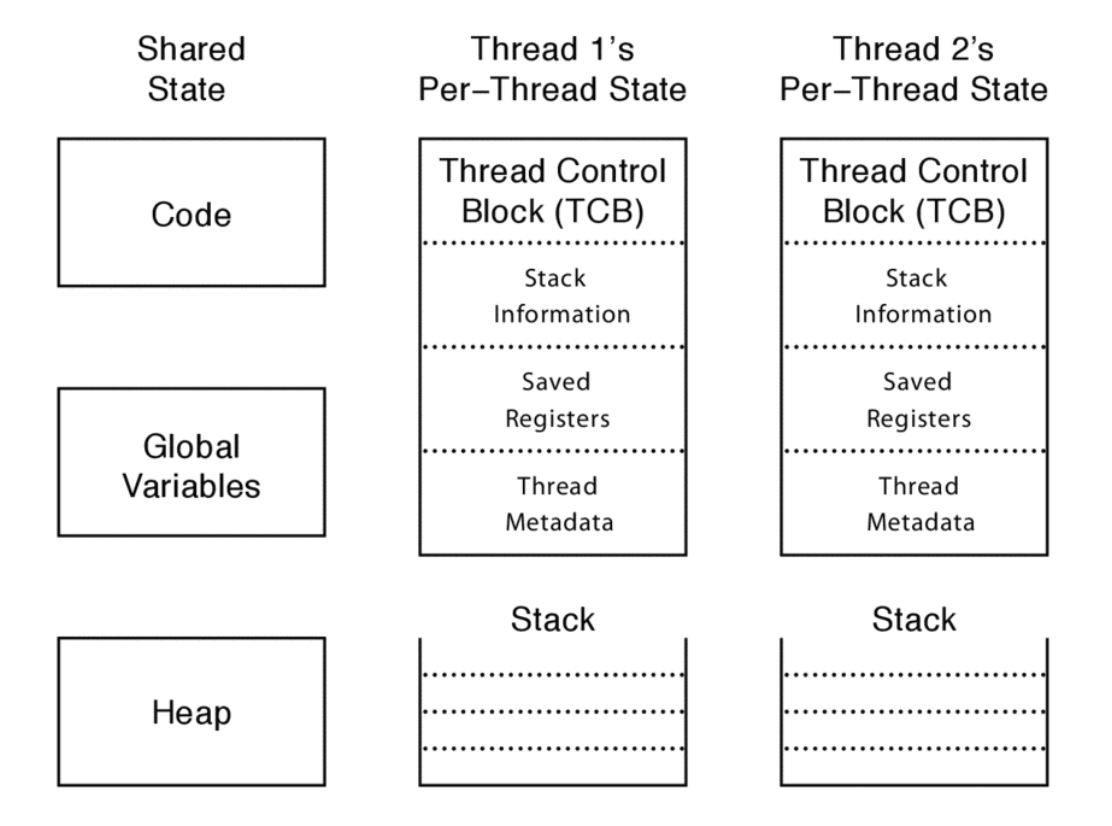
Per-Thread State and Thread Control Block (TCB)
The operating system needs a data structure to represent a threads’s state. This data structure is called the thread control block (TCB). For every thread the operating system creates, it creates one TCB.
The thread control block holds two types of per-thread information:
- Per-thread Computation State
- Per-thread Metadata
Per-thread Computation State
To create multiple threads and to be able to start/stop each thread as needed, the operating system must allocate space in the TCB for the current state of each thread’s computation. This, in turn, is the pointer to the thread’s stack and a copy of its processor registers.
-
Stack
- A thread’s stack is the same as the stack for a single-threaded computation. It stores information needed by the nested procedures the thread is currently running.
- Each thread needs its own stack, because at any given time different threads can be in different states in their sequential computations.
- When a new thread is created, the operating system allocates it a new stack and stores a pointer to that stack in the thread’s TCB.
-
Copy of processor registers
- A processor’s registers include not only its general-purpose registers (for storing intermediate values for ongoing computations), but they also include special-purpose registers, such as the instruction pointer and the stack pointer.
- To be able to suspend/run/resume threads, the operating system needs a place to store a thread’s registers when that thread is not actively running.
Per-thread Metadata
The TCB also includes per-thread metadata, information for managing the thread. This includes thread ID (tid), scheduling priority, and status.
Shared State
Some state is shared between threads running in the same process or within the operating system kernel. The followings are examples of shared states between threads.
- Program code is shared by all threads in a process (although each thread may be executing at a different place within that code).
- Statically allocated global variables and dynamically allocated heap variables can store information accessible to all threads.